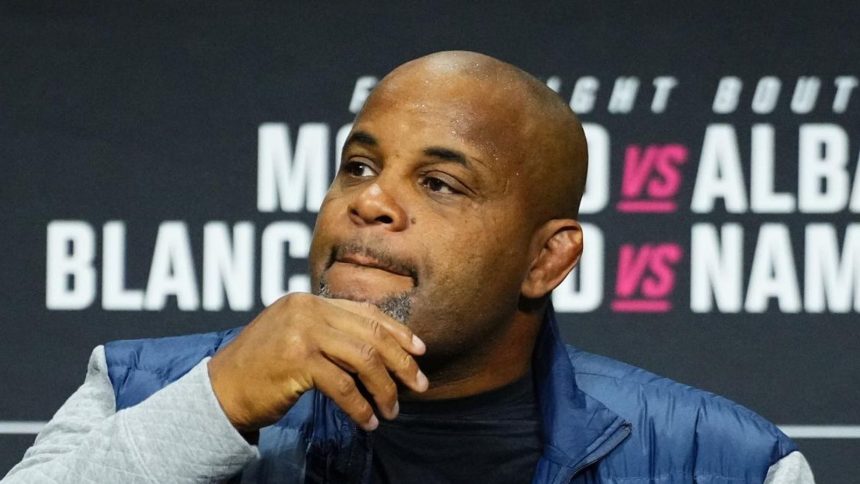Daniel Cormier, a seasoned voice in the UFC world, has presented a compelling argument concerning the future of the heavyweight division. His assessment centers around the impending clash between Jon Jones, returning after a three-year hiatus, and the rising star Tom Aspinall. Cormier, while no longer harboring any personal animosity towards Jones, believes the UFC’s future heavyweight landscape hinges significantly on the outcome of this fight. He suggests that a Jones victory followed by a potential retirement would create a void difficult to fill, potentially diminishing the prestige of the heavyweight title.
Cormier’s rationale lies in the perceived impact of a second consecutive heavyweight champion retiring at the peak of their reign. Francis Ngannou’s departure, though preceded by contractual disputes, left a sense of incompleteness, especially given that Jones never faced him. Cormier argues that if Jones were to repeat this pattern, the subsequent title fights, regardless of the contenders involved, would lack the same weight. The lingering question of Jones’s dominance, unanswered due to his retirement, would cast a shadow over the division, making it challenging for any successor to fully claim the mantle of undisputed champion. This concern, according to Cormier, elevates the importance of Aspinall’s victory, ensuring the continued perceived strength of the heavyweight lineage.
Cormier acknowledges the substantial payday Jones is reportedly seeking for this fight, rumored to be around $30 million. While unsure if Jones will receive that exact amount, he doesn’t dismiss it as unreasonable. He understands Jones’ potential motivation to retire after this bout, culminating a storied career at the pinnacle of the sport. This possibility, however, is the crux of Cormier’s concern. He envisions a scenario where Jones, after defeating Aspinall, declares himself the greatest of all time and walks away, leaving the UFC with a significant challenge.
Cormier’s argument, while compelling, perhaps overstates the potential damage to the heavyweight division. While the immediate aftermath of a Jones retirement might create a sense of discontinuity, history suggests that the mystique of a championship ultimately transcends lineage. The value of the title is intrinsically linked to the fighter who holds it and the narratives surrounding their reign. Over time, a new champion will emerge, forge their own legacy, and redefine the parameters of the division.
The example of Conor McGregor’s featherweight reign serves as a relevant parallel. McGregor never defended the featherweight title, moving up in weight after a decisive victory over Jose Aldo. While Aldo regained the title shortly after, his second reign lacked the same resonance. However, the narrative didn’t stall. Max Holloway, who had previously lost to McGregor, eventually claimed the featherweight title and solidified his status as a legendary champion. Holloway’s journey demonstrates that the lineage of a title, while relevant, isn’t the sole determinant of its prestige.
The notion of a “lineal” championship, a concept often debated in combat sports, holds some weight but isn’t absolute. While a direct line of succession can contribute to a fighter’s perceived dominance, it is the fighter’s performance and the public’s perception that ultimately define their legacy. A new champion, regardless of their connection to previous titleholders, will inevitably emerge and carve their own path. The heavyweight division, rich with talent and potential narratives, will likely follow a similar trajectory.
While Cormier’s concerns about the immediate impact of a Jones retirement are valid, the long-term health of the heavyweight division remains secure. The UFC, with its proven ability to cultivate new stars and narratives, will undoubtedly find a way to elevate the next generation of heavyweights. The cyclical nature of the sport ensures that new contenders will rise, create their own stories, and redefine the meaning of the championship. The title’s prestige, ultimately, lies not in a linear succession but in the dynamism and ever-evolving landscape of the sport itself.



